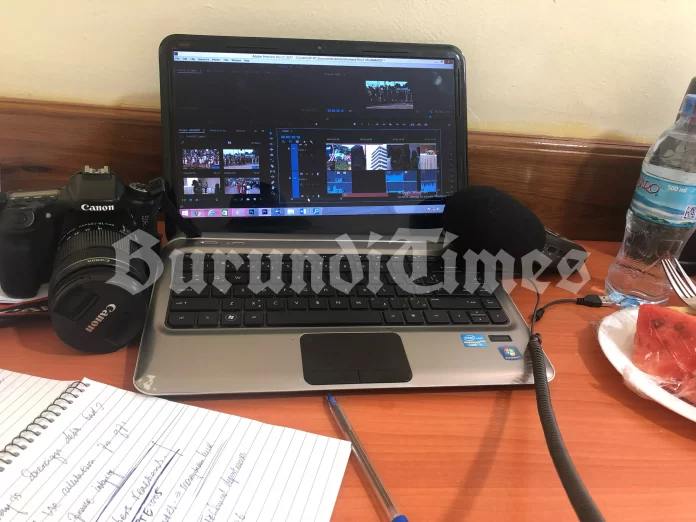With hundreds of media houses registered by the country’s media regulatory body CNC, the question of professionalism, objectivity, impartiality and basics of doing the profession remains in question.
Burundi media fraternity was dealt with a huge blow in 2015 when the political crisis erupted in the country, dragging in several media houses into the conflict resulting to dozens of journalists fleeing the country while some media houses remain closed to date.
Since 2015, a new era of journalists surfaced especially the young, youth and inexperienced whose majority have no mentors or never got a chance to go to any school journalism have now the opportunity to hold the microphone or be behind the microphone to do the noble profession.
These are young, courageous journalists who are in this profession for several or different reasons, largely they are not to blame as their break through into the media industry came when there was a vacuum after the 2015 political crisis.
In the face of social media, digitalization of the media and the need for scoops, fake news and propaganda, impartiality have been thrown out of the window snubbing the journalistic ethics and conducts.
Have the journalists in Burundi become messengers? It’s the question me and you need to answer putting into context the reports and works being generated and done by them.
We are currently in an era where journalistic ethics doesn’t matter but having the likes and retweets on social media matters most, some media houses currently will spike a story that may not sit well with a particular group of people despite the story being authentic and needful to the society.
The fact that to access a school of journalism in Burundi is still a challenge or almost impossible, it remains a concern for the future of the profession as more and more young people are getting into the field but are they properly nurtured?
It is really sad that today majority of the journalists deployed on ground to a specific conference or field will leave their newsrooms without knowing what they are going to cover, as a journalist how do you ask burning questions without any knowledge or clue of a specific subject? How do you educate the public when you yourself you aren’t well equipped or lacking knowledge in a given subject? This is where now the common phrase kick in “Please tell us your name and what the conference was about?”
Journalists and media are called the fourth estate for a reason, currently in Burundi majority of Medias and journalists are doing more of a business than serving the interests of every Burundian/advocacy. Yes media houses need funds to survive but where is the line drawn?
We have witnessed several misinformation and disinformation by recognized media houses in the country, and after apologies are written then everything else is business as usual and it has become a norm.
Journalists and media houses need to go back to the drawing board and redefine journalism and their roles in the society, redefining their editorial lines. The state broadcaster came under heavy criticism for recent months but that will be a topic for another time.
The media and journalists in Burundi seems to be losing the grip, Public relations officers have now taken journos for a ride. A quick example is when an invitation for a presser or a conference is sent, it simply mentions venue and time and a particular person will address the press. Media will swamp the area without even knowing what the presser is all about?
Don’t get me started even when I mention about the brown envelopes (per diem), that have undressed journalism and put up to shame.
I guarantee you if you ask a random journalist on the street about the 5Ws, you will be shocked to notice that he or she may fail to answer. Who is to blame? The media? The Journalist? Or? Does the public consume the right information? Does the public still trust media? A million dollar question remains who is to blame.

